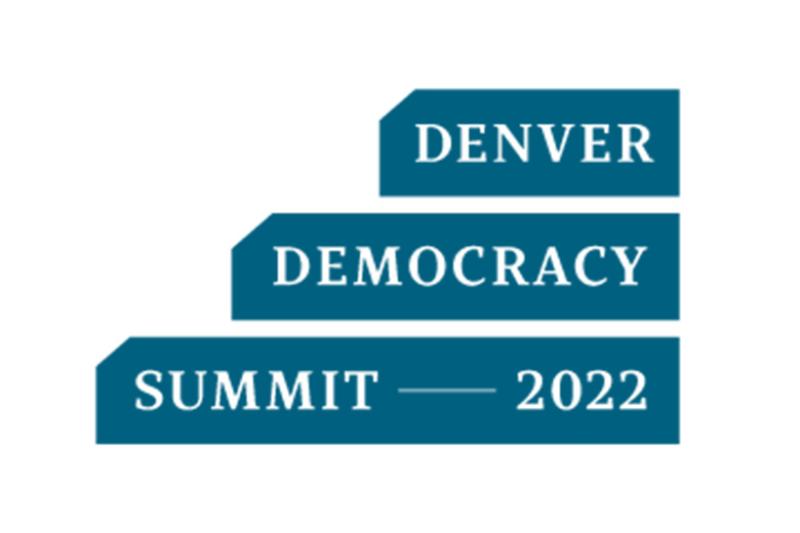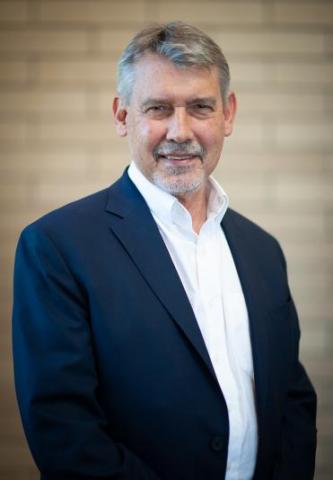Q&A: Can climate change bring down democracy?
The Denver Democracy Summit begins Thursday, Feb. 10

Two of the world’s most pressing problems will cross paths this week on the University of Denver campus.
“Climate change and democracy, I think, are the two existential questions of our time,” says Fritz Mayer, dean of the Josef Korbel School of International Studies. “There are many issues in the world, but if we don't solve these two, we're in real trouble.”
On Feb. 10-11, more than 30 of the world’s most thought-provoking politicians, policymakers, journalists, academics and environmentalists will begin the search for solutions. The second annual Denver Democracy Summit, hosted by the University of Denver's Korbel School and streamed globally, will examine the detrimental effects of misinformation and polarization on the free world, while shining a special light on the issue of climate change.
Register for the Denver Democracy Summit
Ahead of the summit, Mayer answered questions from the DU Newsroom about one of the most serious—but less commonly understood—threats to democracy, the changing climate.
How are climate change and democracy related?
It isn't a connection people naturally make or up until now have made. Responding to climate change requires that democracies persuade their publics to sacrifice for the global good and for future generations and to make very hard trade-offs quickly. And those are not things that are easy for democracies to do.
The conundrum is this: We have to have democracy to solve climate change, but climate change is undermining democracy. Drought, severe weather, flooding, food insecurity, etc., are the big drivers of migration. [All of] those things and migration are deeply destabilizing of any society. And as we've seen in Europe and in the United States, migration pressures, immigration pressures, become a hot button, easily demagogue and so are threats, in a way, to democracy.
The other thing I would point to is climate change really will exacerbate inequality. It has really unequal impacts. Richer people are better able to adapt than poor people. Poor people live in the low areas that are more likely to flood. Poor people have a harder time even installing air conditioning when there are heat waves coming, on and on. And this will—and is already—increasing economic inequality. There is nothing more destabilizing in a democracy historically than gross inequality.
What makes it harder for democracy to address these issues than authoritarian, autocratic regimes?
Autocracies, dictators can just impose a policy, can just say, “This is what we're going to do.” But in a democracy, you've got to get people to vote, to support policies that actually cost them something. Fundamentally, this is a problem of collective action. We have to make choices — as individuals and as citizens — that cost us without enjoying most of the benefits of that. So going green, buying an electric car that costs more than a gas guzzler, all of the things that we have to do in mitigation. The problem is a temptation to free ride on the efforts of others. “I should do it, but I'll let my neighbor do it,” right? That's the fundamental problem here. And we've never seen a scale like this before. This is truly global.
It's hard to build broad public political pressure because it's really [in nobody's interest. The impacts aren't immediately felt, and yet we have to take action now. One [option] is to change your own behavior. The other is to write a letter to your congressperson to take other forms of political action. And then the other [factor] is that, there are a lot of interests, whether it's big [agriculture], business or the energy industry, who are able to block really dramatic action.
What can democracies do to change this mindset of their citizens and take some steps?
A first step is public education. Human beings, once we understand the nature of the threat, are capable of overcoming this collective action problem. The hopeful side is that there are all manner of NGOs and activists in this space, businesses are taking steps, many of them fairly significant, to green their supply chains, and there is growing pressure.
There's a not-unrelated project, which is to strengthen democracy so we have a more functional system. The third thing I would point to [is] really working hard on limiting economic disparities [and] providing assistance to people to adapt. [It’s also] really focusing on the factors that drive migration. Those are two rather specific policy directions that I think would help in the matter of climate justice. But they also have the benefit of reducing the pressures on democracy.
You’ve mentioned before that one of the challenges to doing this is a gap between politics and science. What does that mean?
Well, the science of climate change is pretty well settled at this point. It's not a question anymore of whether human action is causing climate change. It's a question of how rapidly that's happening and what the magnitude of its impacts are. Although there's growing acceptance that there is such a thing as climate change, there are many who either deny it outright or who are unconvinced that it's so important that we need to act. So then the question is, why is that?
And it's an interesting question because it is a question of why we believe anything in politics. We believe what we believe, in my view, on the basis of the stories we’re told about it and the information we get. So what has happened in this country, and to some extent in many other places as well, is there's kind of a separate media information universe in which climate is denied, in which even the words “climate change” become a political signifier. Unfortunately, attitudes about climate change have become a kind of an identity marker. You know, which team are you on, in our highly polar political environment?
There's no cost to somebody of believing false information on this. There's not much value in learning everything there is to learn about climate change. I mean, none of us are really in a position alone to do much of anything. So there's, I would say, a kind of rational ignorance on the part of many who for part of identity reasons would prefer to believe something other than the science. [In] the last presidential election, the majority of self-identified Republicans actually believed the election was stolen. There's no evidence, it's not true, but it's costless in some sense for them to believe it. And it becomes a marker of allegiance. [It’s a] similar dynamic in climate change.
And that ties into one of the other central pillars of the Democracy Summit this year, which is misinformation and disinformation.
Yeah. I mean, we've created a world in which a lot of news is scarcely mediated. As the media has fragmented and the ability [has arisen] of almost anybody to generate things that go viral on the internet, you've created the equivalent of a kind of national, small town gossip echo chamber, where all manner of things are believed and propagated, and then it's exacerbated by the economic incentives of some of the big businesses here, like Fox News. So there's a whole industry now out there exploiting this misinformation, the kind of human tendency to believe the story we want to believe, as opposed to the hard work of actually understanding what's really going on.
What can people expect if they attend the Democracy Summit this year?
Well, an extraordinary diversity of speakers from the U.S., from around the world. I think [they are] perspectives that rarely get aired in popular media, voices that we don't often hear. I think on the one hand, [we’ll hear] greater insight into the threats we face, which may be a little alarming, but also hopefully some hope, some optimism, to hear more about extraordinary efforts being made in this country and around the world to strengthen democracy, to create new institutions, new ways of doing things that really are more inclusive than in the past. That at least gives me hope that we will understand it and address it collectively. We’re all in this together. I think, hopefully, people who listen in would feel like this is something they want to be a part of as well.




